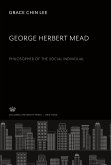Continuing in the tradition of the first edition, Whitbourne's identity process model serves to integrate the physiological with a psychological perspective. The effects of physical changes on the individual are examined in terms of identity, as well as the impact of identity on the interpretation of these changes. The preventive and compensatory steps that indiviuduals can take to offset the aging process are explored as well. As with the first edition, a major strength of this text is the author's illumination of complex biological concepts in a clear and accessible style. The Second Edition includes new material focusing on demographic statistics, chronic diseases, the biopsychosocial perspective, and succesful aging. This edition also features new charts, tables, and figures to highlight the text. This is an excellent text for advanced undergraduate and graduate students in the fields of psychology, gerontology, and social work.
Hinweis: Dieser Artikel kann nur an eine deutsche Lieferadresse ausgeliefert werden.
Hinweis: Dieser Artikel kann nur an eine deutsche Lieferadresse ausgeliefert werden.








